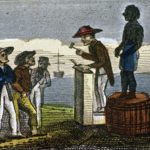By KRISTI EATON, Associated Press
OKLAHOMA CITY (AP) _ Oklahoma State University’s Center for Health Sciences has started an initiative hoping to draw more Native American high school and college students into the medicine and science fields.
The Office for the Advancement of American Indians in Medicine and Science was created at the Tulsa-based medical school in April.
Associate dean Kent Smith said it’s important for more American Indians to go into the science and medicine fields because Native culture revolves around nature, animals and plants. By recruiting more Native Americans into the fields, it will have a positive impact on all Oklahoma communities, he said.
But studies show that few Native Americans choose to go into the fields of science, technology, engineering or mathematics, or STEM fields. About 51 percent of American Indian students graduate from high school, and of those, only about 2.5 percent choose to enter a STEM field, according to a report from Education Week.
“We want to ultimately increase the number of Native people going into science and medicine. But at the end of the day, if Native people earn their bachelor’s degree, I think we’ve succeeded,” Smith said.
One reason Smith believes fewer Native American students go into STEM fields is because of a lack of mentors. That’s why Smith, who is a member of the Comanche and Chickasaw Nations, is using his role to reach out to the state’s 39 tribes and to support Native student programs including one he founded called Native Explorers that combines anatomy, paleontology and medicine with American Indian culture.
The office, Smith said, will show students that they can go to school in Oklahoma and not have to leave their families and support networks, which is often important for Native Americans who grew up in households where family is the focus.
Linsea Howard, a 23-year-old member of the Cherokee Nation, was one of three second-year medical students who presented mini STEM camps to middle and high school students in the Durant area this summer. Howard said she was interested in speaking with the younger students to try to get them interested in the science and medicine fields.
“I didn’t have a lot of that growing up. I know a lot of kids from really highly populated Native areas don’t always get exposure to that,” she said.
Howard, who grew up in Tahlequah, the capital of the Cherokee Nation, added that having that exposure at a younger age could have helped her decide earlier on that she wanted to go into the medical field.
___
Follow Kristi Eaton on Twitter at http://twitter.com/KristiEaton











